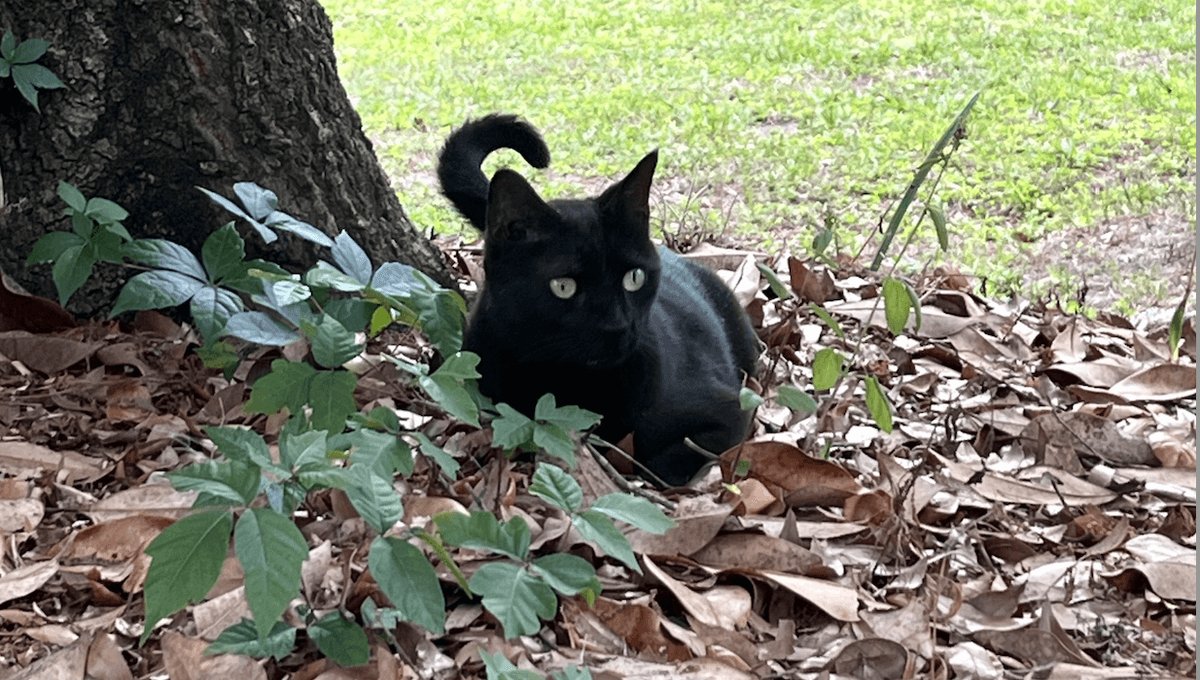
Pepper the pet cat has had his paws in the discovery of two viruses. After helping to find the first jeilongvirus in the US last year, he’s just doubled down and contributed to the identification of a new strain of orthoreovirus.
Granted, Pepper isn’t breaking a sweat over a lab workbench, carefully processing samples and fiddling around with microscopes. His skill is hunting wild creatures, which are diligently brought back to his owner Dr John Lednicky, a virologist at the University of Florida College of Public Health and Health Professions.
In a new study, Dr Lednicky and a team of researchers managed to identify a new strain of orthoreovirus from the spleen and kidney tissues of a dead shrew (Blarina peninsulae) that Pepper caught and killed in Gainesville, Florida.
The team gave it the catchy name “Gainesville shrew mammalian orthoreovirus type 3 strain UF-1.”
“This was an opportunistic study,” Lednicky said in a statement. “If you come across a dead animal, why not test it instead of just burying it? There is a lot of information that can be gained.”
Very little is known about orthoreoviruses. Viruses in this genus are known to infect humans, as well as other mammals, but it’s not well-understood how they can impact health.
“There are many different mammalian orthoreoviruses and not enough is known about this recently identified virus to be concerned. Mammalian orthoreoviruses were originally considered to be ‘orphan’ viruses, present in mammals including humans, but not associated with diseases. More recently, they have been implicated in respiratory, central nervous system and gastrointestinal diseases,” explained the paper’s lead author Emily DeRuyter, a University of Florida PhD candidate in One Health.
Wildlife is a reservoir of emerging viruses. With their natural hunting instincts and access to a wide variety of small wild animals, domestic cats like Pepper could become unexpected allies in virus surveillance. By bringing home prey from creatures that scientists might not otherwise encounter, cats can inadvertently provide researchers with a steady stream of biological samples.
This grassroots form of passive surveillance may offer a novel way to monitor viral biodiversity and detect zoonotic threats, particularly in suburban and city environments, before they spill over into human populations.
It won’t just be finches and mice that cats can capture, either. Studies have shown that domestic cats hunt and eat over 2,000 different animal species. Along with consuming small mammals and birds, scientists have found evidence of cats eating many obscure creatures and large animals, including emus, green sea turtles, and domestic cows (which presumably they scavenged, we hope).
However, conservationists may not be thrilled with the idea of using pet cats as mobile sample-gathering tools. Over 16 percent of the species eaten by cats are of conservation concern and they’ve been linked with dozens upon dozens of animal extinctions. In New Zealand, for example, research in the 1970s found that feral house cats were implicated in the extinction of at least six bird species and over 70 localized subspecies.
Another study in 2022 estimated that pet cats kill between 160 to 270 million animals each year in Great Britain alone. In Australia, cats are responsible for the deaths of up to 650 million reptiles annually.
Presumably, not many of those deaths resulted in a small but significant breakthrough in virology…
The study is published in the journal Microbiology Resource Announcements.
Source Link: Pepper The Pet Cat Has Discovered Yet Another Virus In Florida